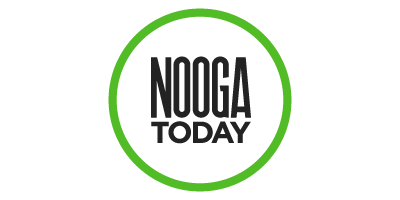It’s no secret that Chattanooga’s internet access is the best. What you may not know, though, is that not everyone in our city gets to enjoy it.
34% of Chattanooga’s Orchard Knob residents don’t have broadband access, and the need for internet is only increasing (when’s the last time you applied for a job offline?).
A new pilot program in this very neighborhood is working to improve community connectivity + health — in a way that’s replicable in other neighborhoods.
What + how
The Orchard Knob Collaborative — a collaboration between several local organizations to help the neighborhood become healthy, safe, and economically viable — created a two-year pilot program to provide equitable access to services in the neighborhood.
The collaborative’s pilot program is one of nine to receive a grant through TVA’s Connected Communities Initiative. The plan includes:
- Expanding public WIFI (adding 21 public WIFI spots, to be exact)
- Offering free digital literacy classes
- Providing smart home upgrades
- Providing 1,000 free telehealth appointments for neighborhood residents
- Creating an online community resource hub
Who
Key partners in the pilot include The Enterprise Center, EPB, Parkridge Medical Center, the Orchard Knob Neighborhood Association, Green Spaces + Habitat for Humanity of Greater Chattanooga.
Each partner will aid in aspects of the program — for instance, Habitat for Humanity and Green Spaces will help with smart home upgrades + Parkridge will provide free telehealth appointments.
Who else plays a major role? The neighborhood residents themselves. The collaborative wants to ensure that neighborhood voices have a lead in the project.
Why
According to Marvene Noel, a leader of the collaborative + recently-appointed District 8 Interim Councilwoman, the Orchard Knob neighborhood has been in an unfortunate position wherein residents needed help, but couldn’t take advantage of many “wonderful city programs” due to income guidelines. What the data says:
- 54% | Residents who identify as African American
- 26% | Neighborhood poverty rate
- 34% | Households without broadband
The program hopes to increase access to and skills for technology + resources, improve health outcomes and local quality of life, increase energy efficiency, and gain neighborhood economic development.
And of course, if all goes well, this pilot will be replicable in other communities + neighborhoods in need.
“We already have folks from other neighborhoods calling me and saying, ‘when are you coming to our neighborhood?’ — it’s a difficult implementation, but together we will... hopefully have a model that can be replicated.” — Enterprise Center President + CEO Deb Socia

